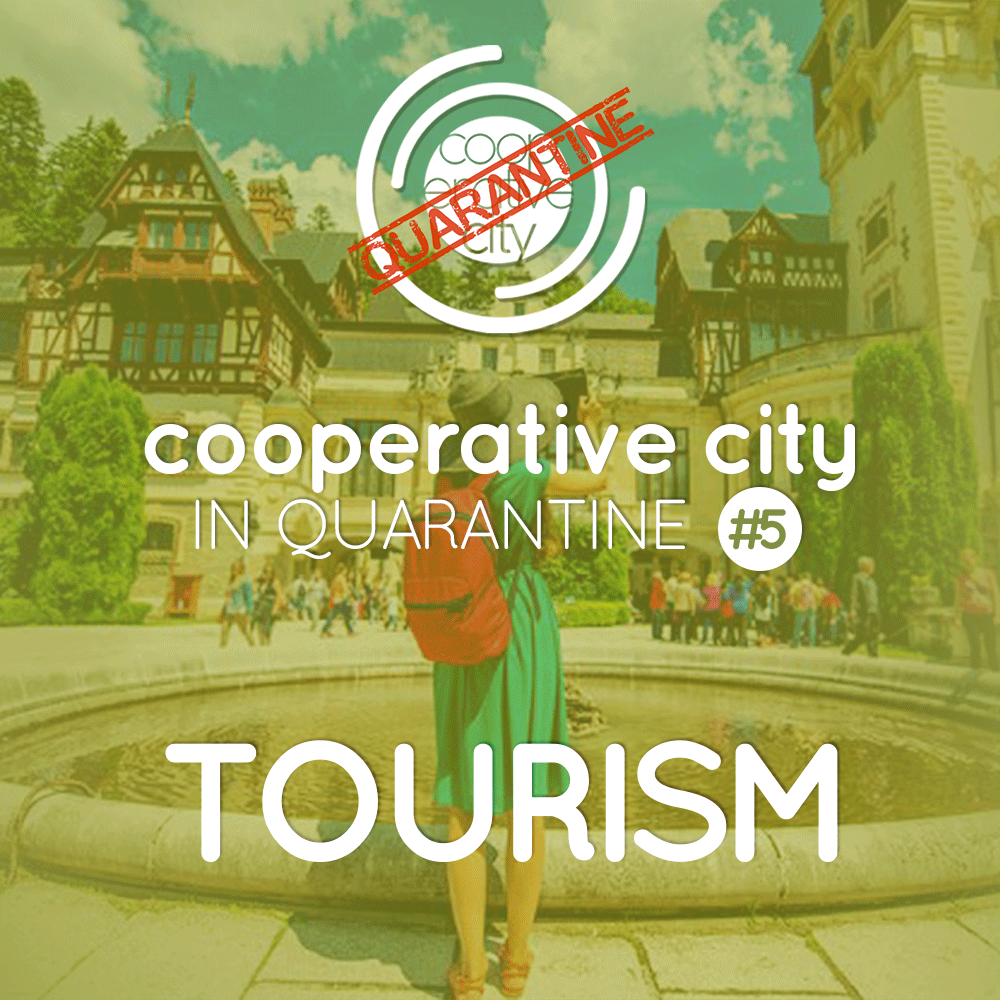Tourism is big business: It employs more than 12 million people in Europe, it counts for 3,9% of EU’s GDP, in 2019 global tourist revenues amounted to 9,25 trillion USD, and half of the tourists worldwide visited Europe. Due to the current lockdown, international tourism may drop by 30% in 2020, causing unprecedented damage to professionals working in this sector. At the moment, monthly loss in the EU has been calculated to be approximately 1 billion€. While the lockdown continues despite projections of gradual reopening, sectors such as tourism will not be able to operate for several months to come, and the skyrocketing unemployment from the crisis will most probably imply a very slow and painful recovery. We are discussing how tourism is being affected by this crisis, at the same time how can this be an opportunity to rethink the sector, giving opportunities to local and sustainable development.
- LEARNING POINTS OF THIS DISCUSSION
For this crisis to be an opportunity we need to ensure that action is fast, as many of the businesses are already struggling financially and risk closing down. - Small businesses need financial support as they risk going bankrupt and being bought up by larger enterprises, which is a highly likely scenario under the current conditions.
- There is the need to make use of digital tools to ensure that, especially small businesses can be visible on the market.
- Summer 2020 will probably be very local, this can be a great opportunity for small and socially oriented businesses to survive the current crisis, even if national local tourism might not be able to economically compensate international tourism on the short term.
- Businesses need to connect to their local communities asking for support, most likely those who had already created a bond will manage better, therefore especially socially oriented enterprises.
Daniela Patti (Rome) community expert and Yilmaz Vurucu (Vienna) filmmaker Eutropian moderated Cooperative City in Quarantine #5.
Our panel on our discussion on tourism included:
Laura Gaggero – Councillor for Tourism and City Promotion, Genoa, Italy
Damiano Avellino – Fairbnb, ethical holiday rental website
Gabriella Sonnleitner – Magdas Hotel – hotel employing refugees in Vienna, Austria
Cesare Torre – Director of the Department for Tourism and City Promotion, Genova, Italy
Nicholas Karachalis – Thessaly University, Volos, Greece
Even before the crisis there had already been concerns raised about the issues of mass tourism. AirBnb has been blamed for shutting residents out of the local property market, locals protest against the “invasion” of tourists, municipalities around the continent have enacted ordinances to contain the flow and protect monuments. This sector has always had big issues, and maybe the current crisis holds opportunities to rethink tourism and move towards a more sustainable model.
Before we started our discussions with our panellists, we showed the collected video contributions from Rome, Budapest and Tel Aviv to show how the crisis is affecting different players in the tourism sector, from tourist guides to marketing agencies.
What is your current thinking about tourism?
Nicholas Karachalis – “We are actually desperate to bring tourists back, as tourism counts for 40% of national economy. On the other hand, overcrowded cities and islands are starting not to be attractive to tourism, and most probably this trend won’t change in the following months and years. The Covid outbreak can be an opportunity for change, as precariousness was already a big issue that must be dealt with. The state hasn’t provided financial help for the workers of this sector as the high season hasn’t started yet”.
Laura Gaggero – “Despite the issues we have been facing, we are very resilient. First, we are addressing the government about the importance of tourism, a sector that counts for 15% GDP in Italy, but in our city it amounts to 20%. At the same time we have prompted the reaction of stakeholders – hotels, cruises, aquarium, tour guides, among others. Stakeholders shared proposals and perspectives. In terms of sustainability, Genova always been forward, so we are ready to recover. We are also leading an international think tank on tourism while being involved in the URBACT program. Other current activities include working towards establishing new agreements with AirBnb, Fairbnb and Wonderful Italy while creating an intercity network with other Italian cities such as Milan, Turin and Venice in order to promote tourism”
What can ethical stakeholders such as Fairbnb do to change the sector?
Damiano Avellino – “Tourism has always been characterized by contradictions and precariousness. During the past 40 years tourism grew by 700%. Such a speedy growth is clearly unsustainable and damages the social fabric, as wealth is not distributed. The role and aim of sustainable tourism is making sure it creates shared prosperity. How can we reduce the negative footprint on the environment, how can we respect and involve local communities? Linking communities to our platform we are starting a process that tackles all these issues”.
Fostering cooperation is a crucial factor in solving the issue. How did you develop this, and how do you think this is being useful right now?
Cesare Torre – “As Laura said, we gathered the most important stakeholders in order to develop new opportunities for the creation of a new tourist environment. We want to show a safe city that can offer different opportunities for visitors, but we have also been working with the tools URBACT gave us in order to coordinate the communication of the city in this direction. Cultural enterprises such as festival organisers, theatres, galleries also have an important role in this, so we are focusing on the creation of new cultural products based on quality rather than on the quantity of public they can reach. We want to offer new ways to discover the city, and given the present situation it is necessary to develop cultural products that are suitable for the web as we won’t be able to have live events for the rest of 2020”.
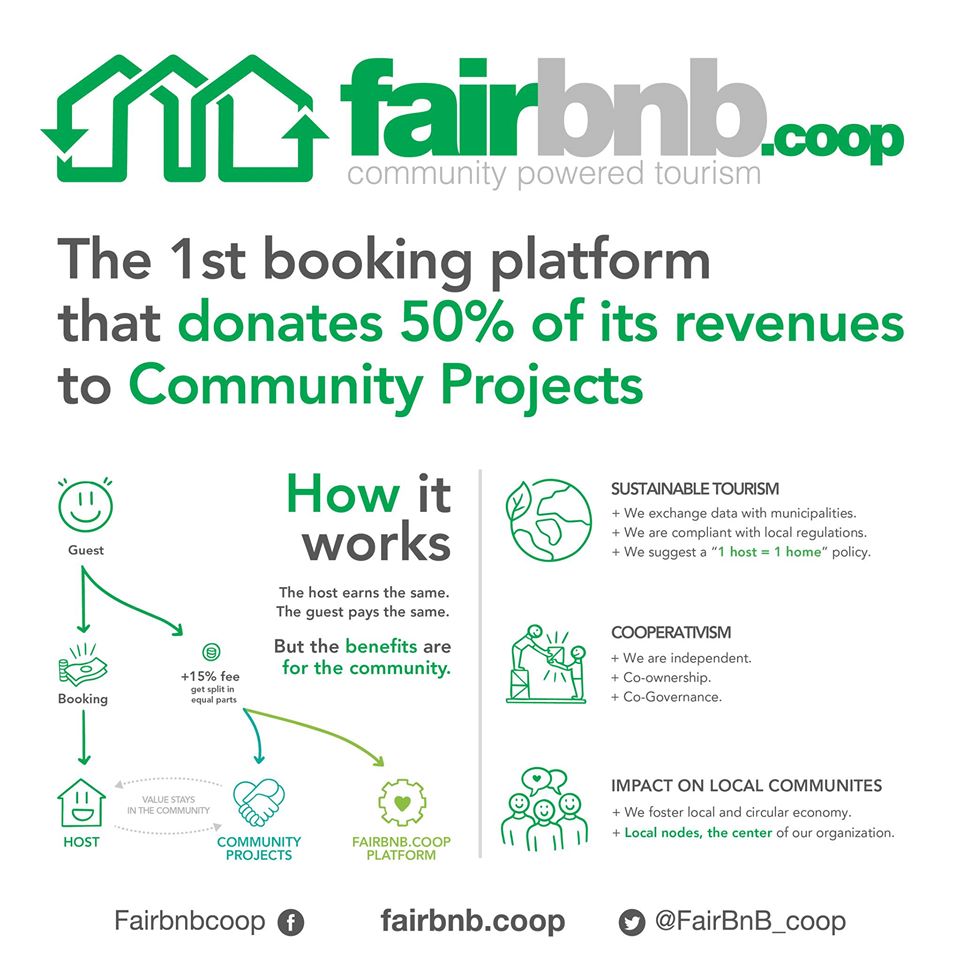
The city of Vienna has been experiencing unprecedented income from tourism during the last years. Gabriella and the case of Magdas Hotel is very interesting. How does it contribute to the sector, both in Vienna and beyond?
Gabriella Sonnleitner – “It’s a matter of balance. On the one hand we are solving social problems, as our staff is run by former refugees. We train them, so that they can work in the sector and develop it, as one of the major issues of Austrian tourism is the shortage of staff. Our first-time visitors think they stay in a normal hotel, but later realise the vulnerable social group we work with. So we offer something new while contributing to making Vienna a destination, while visitors get a new impression of social work and see how it can be applied to tourism”.
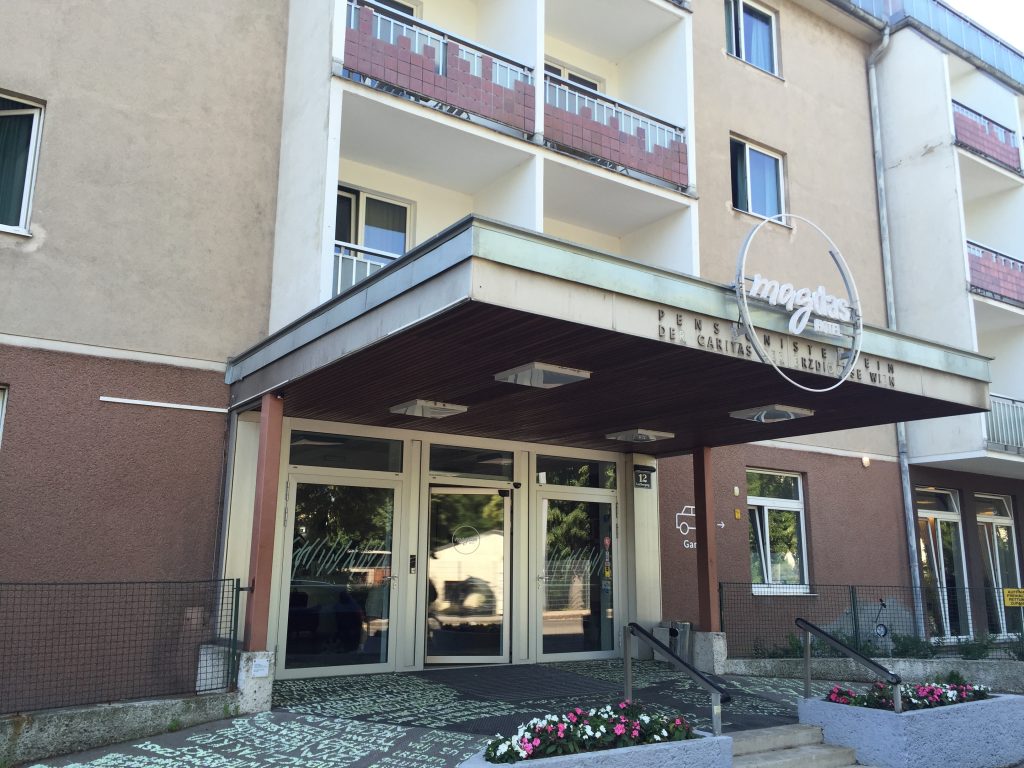
What will tourism in the future look like?
Nicholas Karachalis – “Large tour operators will merge, their negotiation power will become higher while small, local businesses will go bankrupt. In order to avoid economical loss, sustainability will not be prioritized, and most Municipalities in countries with a fragile economy are not a strong stakeholder. However, there are strong indicators that travellers will change their holiday habits, favouring solo traveling to groups, budget tourism and more sustainable options, so I try to be optimistic, wishing this will be a chance for change. Liquidity is not easy to handle. From my personal experience, policy makers want to see results the next day and believe that as soon as the lockdown finishes problems will be solved. This is not true, and it’s wrong to believe it. We have to plan in advance, we have to think on the long term and build city narratives in order to attract visitors”.
Laura Gaggero – “This is a really big opportunity. We think that the whole city should be valued, which is why we are trying to create new reasons for visitors to come here. There are beautiful sights even in the suburbs, and this could boost the local, small businesses”.
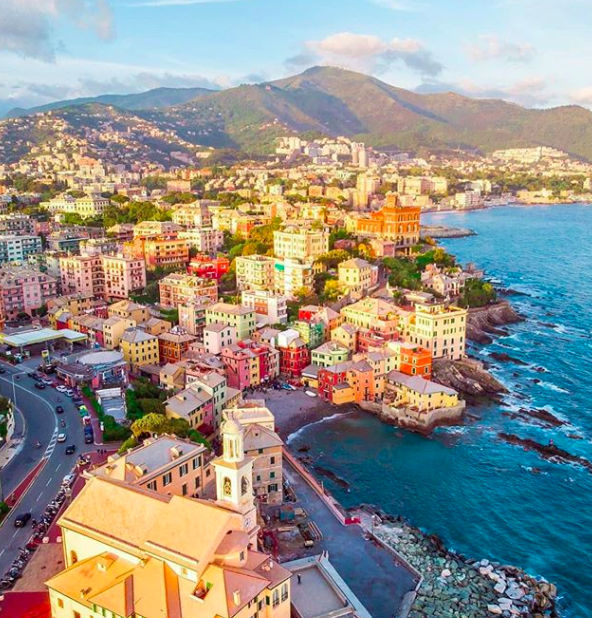
Damiano Avellino – “For sure in this new situation technology will need to adapt. We collaborate with social cooperatives trying to understand how to adapt. What will people seek, what will we be able to offer? For example, Piazza Grande from Bologna offers tours made by (formerly) homeless people. We need to create new tools based on people’s needs, using technology to spread the word and attract more visitors”.
Gabriella Sonnleitner – “We have a short-term goal to start as soon as possible with inbound tourism. We should ask ourselves how tourism can contribute to a sustainable lifestyle. Tourism has such a strong impact that causes social issues, on a long term this will not be working. We need farsightedness – what will happen with an unsolved climate crisis, how will it destroy even the corporate assets? What is going to happen in 50 years?”
Italy is planning tax rebates to help local businesses and to boost ethical tourism. If true, what will summer 2020 in Genoa look like, for example, and what will you do to promote it?
Cesare Torre – “The new frontiers of sustainability will be health and safety. Planning communication and marketing strategy is crucial, advertising our city as safe, welcoming, offering different ways of approaching its beauties. We are working on outdoor, historical centre and outskirts valorization and we will focus more on inbound tourism”.
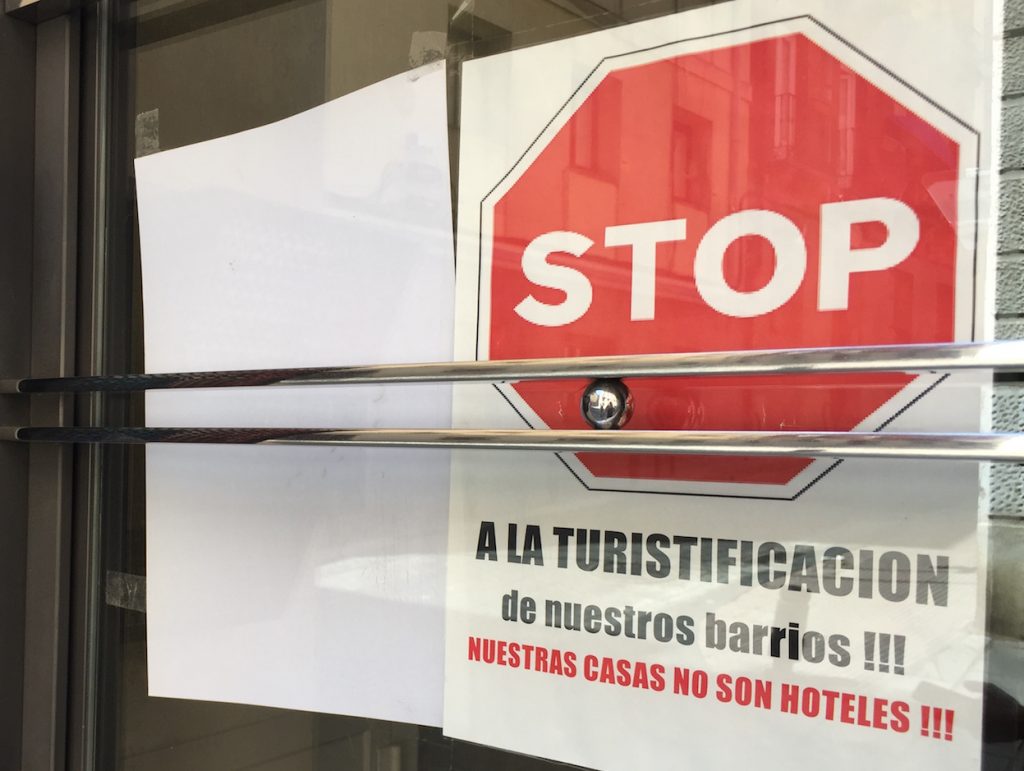
What can we all do to support small businesses?
Gabriella Sonnleitner – “Our crowd is very supportive. For example, some people left their deposit saying they will come later. Crowdfunding campaigns are also a method, and on a small scale we can include the visitors we already know and the potential ones, and they will want to come (back) if they love you. Smaller businesses should invest in human contact”.
Laura Gaggero – “I think people are creating a new sense of community also in business. Ethics is awakening and things will have to change, especially after such a pandemic”.
Cesare Torre – “Cooperation and synergy between local stakeholders, smaller businesses and city administration will be more and more important. Only the most resilient and prepared cities will be able to fully recover. Also, we should keep in mind that tourist trends will change: destinations that can offer more outdoor activities, or that are based on this aspect, will be advantaged”.
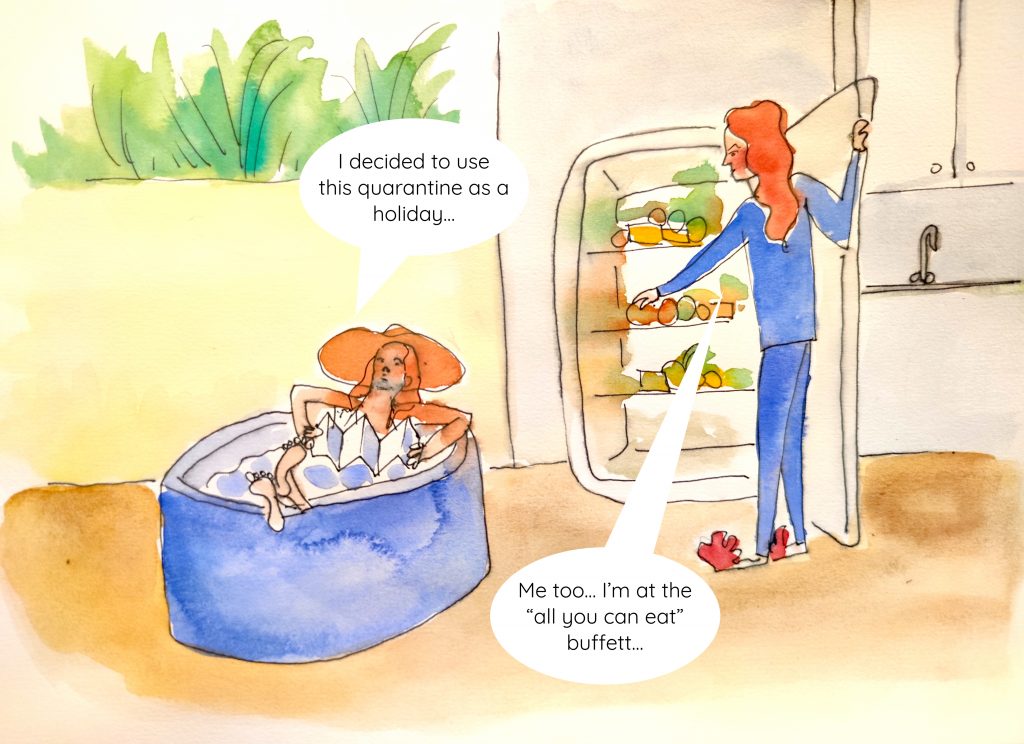
Damiano Avellino – “Fairbnb is a good example in this regard. Small businesses and providers need to give their best to tailor their expertise based on the place they operate in, making sure to find new channels to facilitate their targets. Maybe people will start to visit less crowded places and that could be beneficial for the local population”.
Solutions need to be fast AND innovative. This is not easy because we have an issue of digitalization. Management might not be ready for this yet, considering that many stakeholders are not used to extensively work with technology and/or social media marketing. This is where city administrations should help.
Follow our next live episode this Friday 24.04.2020 at 17.00 CET on Facebook at @cooperativecity.org that will focus on common goods? How can we build a better world together?

